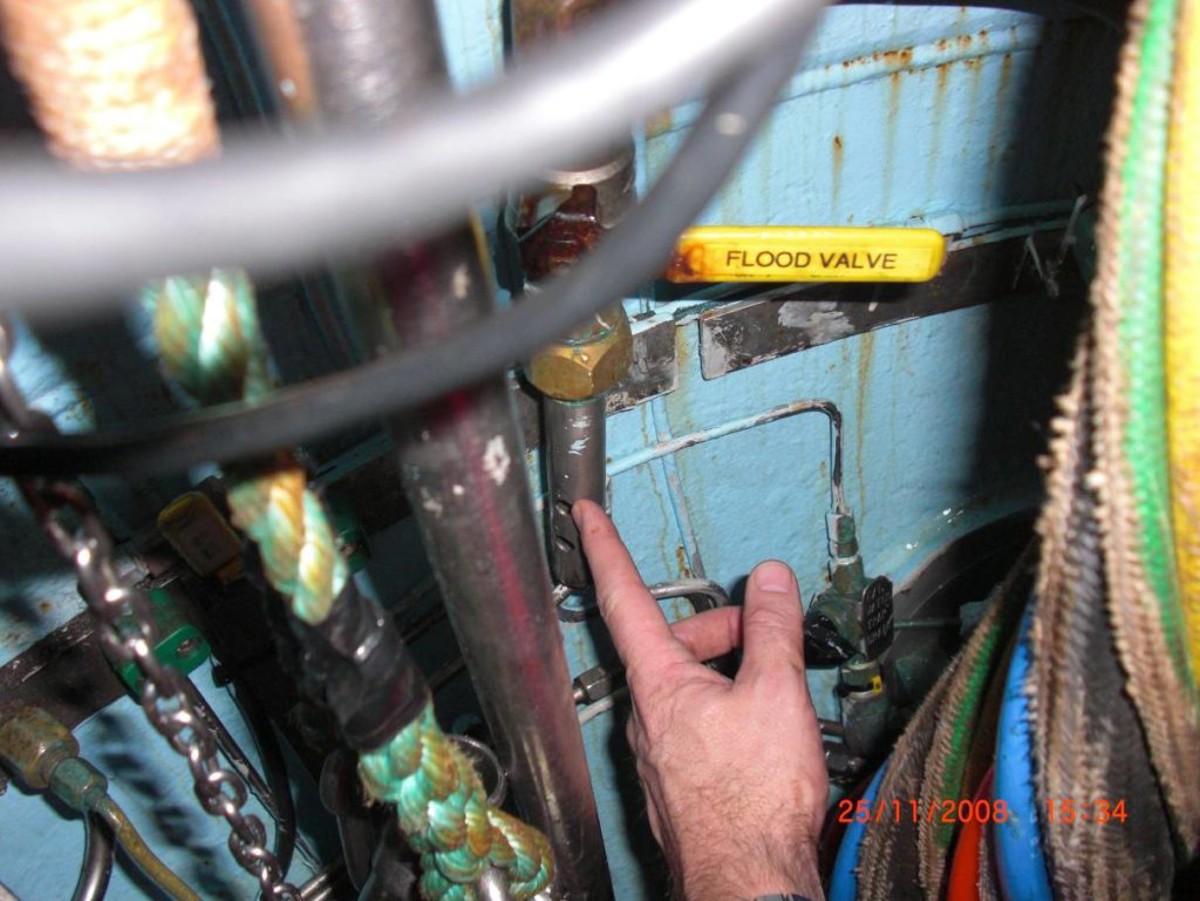Dive bell gas loss during internal bell checks
- Safety Flash
- Published on 5 March 2009
- Generated on 15 February 2026
- IMCA SF 03/09
- 2 minute read
Jump to:
A Member has reported that the aft dive bell onboard a dive support vessel suffered a gas loss while pre-dive bell internal checks were being carried out.
What happened
One diver (the bellman) was carrying out the bell checks while two of his colleagues remained in the compression chamber. During the internal checks, a bell flooding valve was accidentally opened as the diver’s umbilical made contact with it, allowing dive gas to escape from the dive bell. The dive bell pressure dropped from 75 msw to 52 msw. The diver (bellman) managed to locate and close the open flood valve.
The dive bell was re-pressurised and the bellman transferred to the compression chamber and, together with the rest of the diving team, underwent re-pressurisation to 95 msw as per the company’s diving emergency tables.

the diver (bellman) managed to locate and close the open flood valve
What were the causes?
After investigation by the company involved, the immediate cause was attributed to a sudden gas loss and decompression of aft dive bell caused by the flood valve being accidentally opened allowing gas release. Underlying causes were identified as follows:
- Confined and restricted space when carrying out dive bell internal checks.
- Valves, valve panels, gauge panels in dive bell difficult to access.
- Bell ergonomics unsatisfactory.
- Secondary hull penetration valve left open.
- Flooding valve sensitive to touch.
- Dive bell interior cramped and short of space.
- Dive umbilical heavy and difficult to move.
- Heavy condensation and high noise when gas escaping making finding of the open valve difficult and the dive bell interior hazardous.
- Diver familiarisation should be more structured and vessel-specific.
- Bad practice of leaving bell internal penetration valve open.
Actions
The company has put procedures in place to ensure that:
- the flood line is fitted with two valves
- the two valves are closed, and
- the hull stop has a securing mechanism to avoid accidental opening (the securing mechanism also goes to the bilge drain in the bell).
Members are reminded of the importance of correct checklists being carried out in line with company procedures.
IMCA Safety Flashes summarise key safety matters and incidents, allowing lessons to be more easily learnt for the benefit of the entire offshore industry.
The effectiveness of the IMCA Safety Flash system depends on the industry sharing information and so avoiding repeat incidents. Incidents are classified according to IOGP's Life Saving Rules.
All information is anonymised or sanitised, as appropriate, and warnings for graphic content included where possible.
IMCA makes every effort to ensure both the accuracy and reliability of the information shared, but is not be liable for any guidance and/or recommendation and/or statement herein contained.
The information contained in this document does not fulfil or replace any individual's or Member's legal, regulatory or other duties or obligations in respect of their operations. Individuals and Members remain solely responsible for the safe, lawful and proper conduct of their operations.
Share your safety incidents with IMCA online. Sign-up to receive Safety Flashes straight to your email.